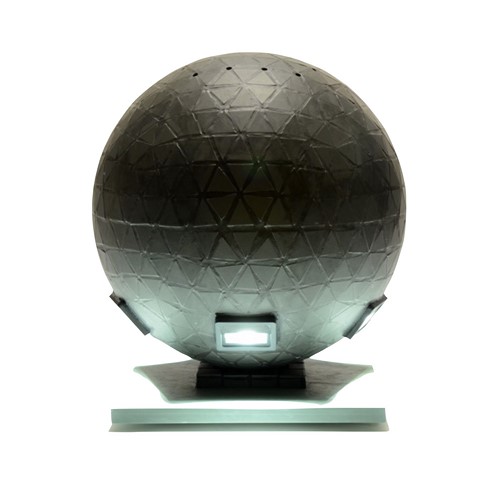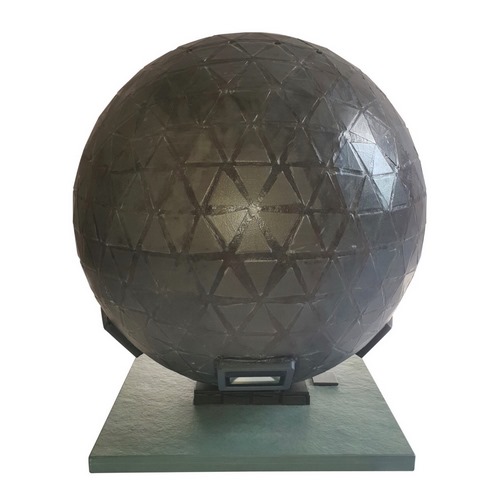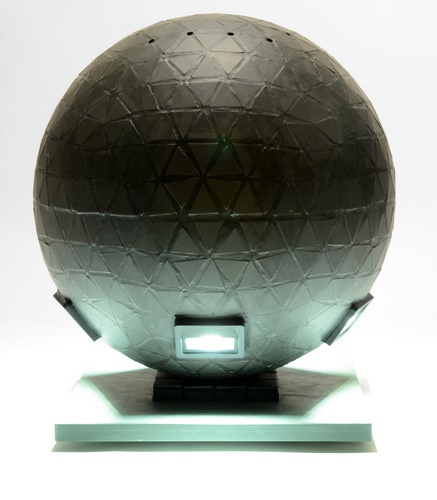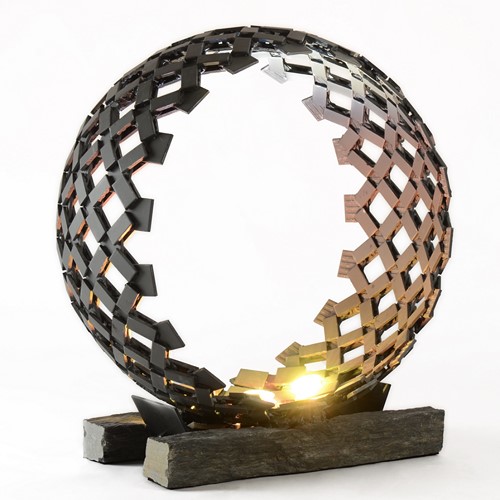Sphere
2018
A pentasymetry of large spherical triangles

This is a sphere consisting of two Fuller’s domes of frequency 6, 60 cm in diameter, symmetrically assembled. The structure is self-supporting and therefore forms a perfect exoskeleton.
On the sphere’s surface, there are 720 ceramic triangles arranged in hexagons. They are divided into 34 different categories and show the characteristic geodesics of the work. All the geometrical properties appear on the surface of the geode.
This convex polyhedron is part of a sphere that tends towards the perfect shape. To create this work, it was necessary to consider a regular convex icosahedron. The 12 tops of the polyhedron were organized so that they can be distributed on the surface of the geode.
The ceramic triangles were all cut one by one to form a regular paving. They materialize the 20 large spherical triangles corresponding to the projections of the faces of Plato’s solid.
Technical
Ceramic, Led, Green Slate
Dimensions
Length 60cm
Height 60cm
Depth 60cm
Two fuller domes of frequency 6 symmetrically assembled

Due to its shape and the materials that constitute it, Sphere is of great strength and can withstand a pressure of up to 40 MPa. This geometrical object can be compared to a model derived from the finite element method.
This mathematical principle makes it possible to approach a surface by numerical analysis, by assimilating it to a continuous set of triangles. The sources of white lighting with cold radiation (close to daylight) are LED lamps. They illuminate horizontally the area around the work at about 60 centimeters above the ground.
They are five in number and are part of the pentasymetry of the spherical triangles mentioned above. For Philippe Fares, the realization of this piece was an opportunity to rediscover all the geometric properties related to its design.












